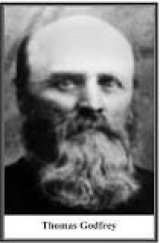Analysis of The Invitation
Thomas Godfrey 1704 (United States) – 1749 (United States)
Haste! Sylvia! haste, my charming Maid!
Let's leave these fashionable toys;
Let's seek the shelter of some shade,
And revel in ne'er fading joys.
See spring in liv'ry gay appears,
And winter's chilly blasts are fled;
Each grove its leafy honours rears,
And meads their lovely verdure spread!
Yes Damon, glad I'll quit the town,
Its gaities now languid seem;
Then sweets to luxury unknown
We'll taste, and sip th' untainted stream.
In Summer's sultry noon-tide heat,
I'll lead thee to the shady grove;
There hush thy cares, or pleas'd repeat
Those vows that won my soul to love.
When o'er the mountain peeps the dawn,
And round her ruddy beauties play,
I'll wake my Love to view the lawn,
Or hear the warblers hall the day.
But, without thee, the rising morn
In vain awakes the cooling breeze,
In vain does nature's face adorn;
Without my Sylvia nought can please.
At night, when universal gloom
Hides the bright prospect from our view,
When the gay groves give up their bloom,
And verdant meads their lovely hue;
Tho' fleeting spectres round me move,
When in thy circling arms I'm prest,
I'll hush my rising fears with love,
And sink in slumber on thy breast.
The new-blown rose, whilst on its leaves
Yet the bright scented dew-drops found,
Pleas'd on thy bosom, whilst it heaves,
Shall shake its heav'nly fragrance round.
Then mingled sweets the sense shall raise,
Then mingled beauties catch the eye;
What pleasure on such charms to gaze!
What rapture mid such sweets to lie!
How sweet thy words!--but, Damon cease,
Nor strive to fix me ever here;
Too well you know these accents please,
That oft have fill'd my ravish'd ear.
Come, lead me to these promis'd joys,
That dwelt so lately on thy tongue;
Direct me by thy well known voice,
And calm my transports with thy song!
| Scheme | ABABCDCD XEXEFXFG HIHIJKJK LMLMXNGN OPOPQRQR XSKSBXXX |
|---|---|
| Poetic Form | |
| Metre | 110011101 11110001 11010111 01001101 1101101 01010111 1111011 0111011 11011101 111101 11110001 1101110101 01010111 11110101 11111101 11111111 110010101 01010101 11111101 11010101 10110101 0110101 01110101 011100111 1110101 101101101 10111111 01011101 1101111 101100111 11110111 01010111 01111111 10110111 11110111 1111101 11010111 11010101 11011111 11011111 11111101 11111101 11111101 1111111 11111101 11110111 01111111 01101111 |
| Closest metre | Iambic tetrameter |
| Characters | 1,799 |
| Words | 321 |
| Sentences | 23 |
| Stanzas | 6 |
| Stanza Lengths | 8, 8, 8, 8, 8, 8 |
| Lines Amount | 48 |
| Letters per line (avg) | 29 |
| Words per line (avg) | 7 |
| Letters per stanza (avg) | 230 |
| Words per stanza (avg) | 52 |
Font size:
Submitted on May 13, 2011
Modified on March 05, 2023
- 1:42 min read
- 89 Views
Citation
Use the citation below to add this poem analysis to your bibliography:
Style:MLAChicagoAPA
"The Invitation" Poetry.com. STANDS4 LLC, 2024. Web. 30 Apr. 2024. <https://www.poetry.com/poem-analysis/36282/the-invitation>.


Discuss this Thomas Godfrey poem analysis with the community:
Report Comment
We're doing our best to make sure our content is useful, accurate and safe.
If by any chance you spot an inappropriate comment while navigating through our website please use this form to let us know, and we'll take care of it shortly.
Attachment
You need to be logged in to favorite.
Log In